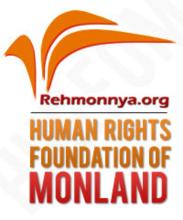Resource information
Executive Summary:
"Recently, much attention surrounding Burma has focused on the democratic reform, 2015
elections and the future of the National League for Democracy (NLD)-led Government, whilst
a profound humanitarian crisis and continuing concerns of the ethnic minority communities in
the southeast have been largely ignored. The recent story of political and economic reform
has insufficiently addressed the ongoing struggles of internally displaced persons (IDPs), as
they become an inconvenient truth rendered invisible by the larger reform narrative.
Nearly 70 years of ethnic conflict has created a displacement crisis with over 644,000
internally displaced and over 479,000 refugees fleeing the country predominantly from ethnic
areas. At present, over 100,000 refugees live in camps along the Thailand-Burma border,
and approximately 400,000 IDPs live in protracted displacement in southeast Burma. As the
continuing political and social transformation in Burma and the triumph of the NLD in the 2015
elections captivates local citizens and foreign observers around the world, optimism and the
infectious idea that those displaced will soon begin to move back to Burma has led to further
decline in donor funding along the Thailand-Burma border.
This has deeply impacted the refugees and IDPs living along the border whose lives depend
on international aid as well as essential services and programs offered by local ethnic
service providers, which were traditionally funded by the international donor community. Many
refugees are now feeling squeezed out of the camps, bearing a resemblance to the experience
of Mon refugees who were pushed back across the border to Burma and became IDPs
over 20 years ago. As expressed by many Mon IDPs interviewed for this report, they have yet
to find durable livelihood solutions in IDP sites and continue to suffer from chronic poverty,
debt and lack of medical care. Inside Burma, stagnation in amending repressive laws, military
dominance in politics, the absence of an inclusive ceasefire and political dialogue, the presence
of landmines and land confiscation that has become endemic throughout the country
continue to render the definition of a safe and dignified voluntary return of refugees meaningless.
As plans to repatriate over 100,000 refugees along the border continue to be discussed,
there is an increasing need to reflect on the past and draw lessons that could prevent a future
protracted IDP situation in the country. This report aims to shed light on lessons that can be
learned from the past for all stakeholders involved in all stages of planning for the return of
refugees and IDPs.
While the IDPs interviewed for this report expressed their desire to stay in their current
locations as opposed to relocation or return to their original location, they often cited two major
obstacles to their possible return: not having land to return to and continuing considerations
about safety including lack of sustainable peace in their place of origin.
The plight of villagers and farmers in Ye and Yebyu Township in their struggle to preserve
and protect their land from the Burma Army, the State and private investors indicate that refugees
and IDPs are likely to face increasing housing, land and property (HLP) rights violations
upon their return. These HLP rights violations must be resolved not only to ensure the durable
return of IDPs and refugees, but also to end further displacement that is adding to the already
vast number of displaced people inside and out of the country. Steps must also be taken to
ensure that a genuine and inclusive peace process remains a priority, as it is only through an
inclusive ceasefire and sustainable peace that a durable solution can be found for the disenfranchised
and displaced communities in Burma.
Community-based organizations (CBOs), ethnic service providers, and grassroots movements
with decades of experience and knowledge that have worked side-by-side with their
communities through difficult and challenging times are tackling these very issues and concerns
that the IDPs, refugees and villagers are facing. As the new NLD-led Government has
begun to take the reins of the political and economic reforms set in motion by the previous
government, all parties must ensure that the efforts of those who have consistently worked
alongside ethnic communities are supported and advocated, and not sidelined.
HLP rights of refugees and IDPs must be restored, laws that are legacies of the past must
be amended, landmines must be cleared from the land and an inclusive ceasefire followed
by a political solution is needed to protect them from further abuse and possible secondary
displacement before a durable livelihood solution can be achieved. National reconciliation
is possible only when victims begin receiving the support they need to ensure that they can
rebuild their lives in safety and dignity.




